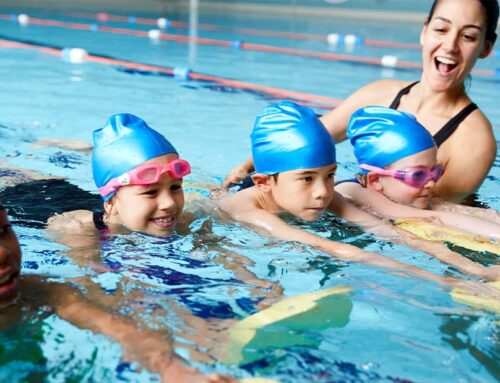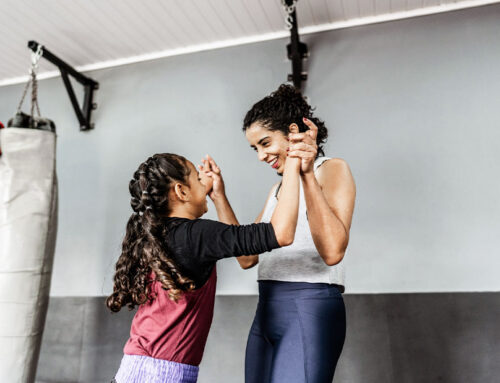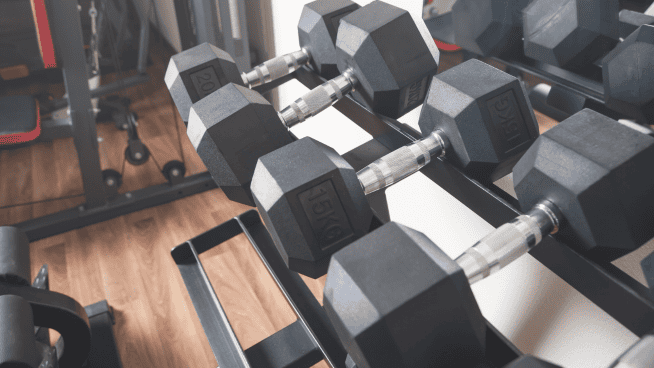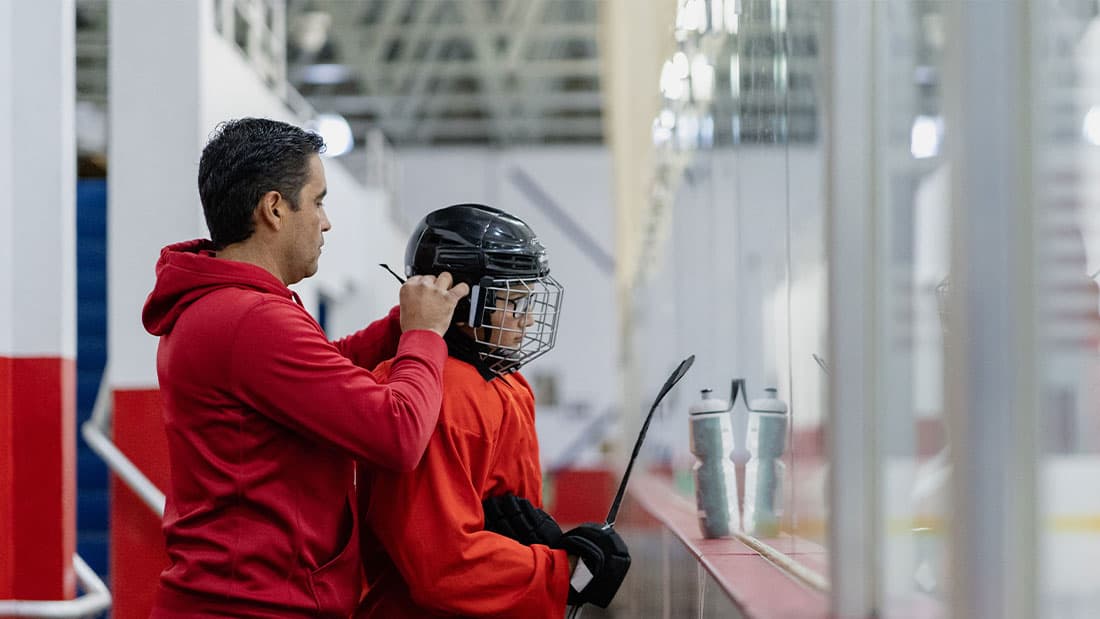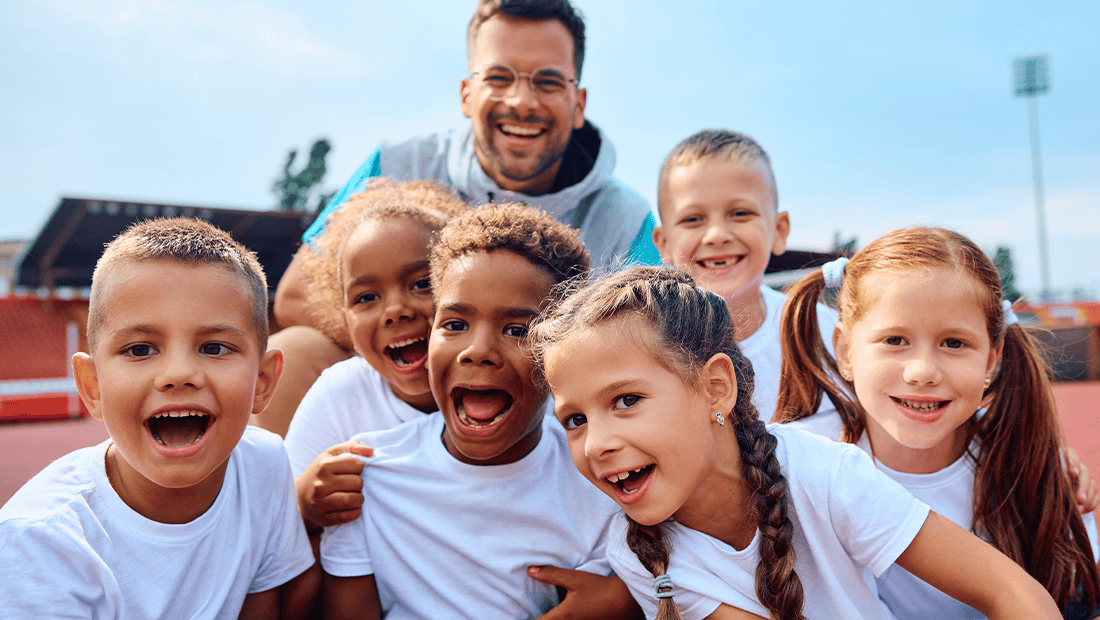Unlocking the Athlete Within- Master Effective Communication as a High School Coach
As a high school coach, establishing a solid relationship with your athletes requires effective communication. This will ultimately enhance their athletic performance, develop a winning team, build confidence, and promote a positive lifestyle. Communication is the key to discovery and growth that leads to improving oneself.
Here is a list of strategies to help you improve and adapt your communication skills to develop and motivate your athletes and ensure a successful coaching experience.
Be approachable and build rapport.
To build a good relationship with your athletes, they need to be able to trust you first.
Earn trust by being friendly. Being friendly makes you easier to talk to. This eliminates the feeling of being shy and allows the players to express their ideas. So, develop a comfort zone making it easier for them to ask questions or express their concerns. Take the time to get to know your athletes and show them you’re genuinely interested in their potential and success.
Actively listen.
Giving them your undivided attention will show that you are serious and care about them. When your players see you care, they will confide in you. And when they confide in you, they can play their best. So, maintain eye contact, nod affirmatively, and employ positive body language to convey your interest. Avoid interrupting or hurrying the conversation so you can get the whole story.
Coaches who take the time to listen to their athletes’ concerns and ideas earn trust and respect. When players feel heard and understood, they feel valued. And feeling valued leads to motivation. And motivation optimizes performance. Also, they can clear their minds and receive positive direction, leading to better results.
Use clear and concise language.
Avoiding technical terms that might be hard to understand when talking to your athletes. Clear and concise language minimizes the potential for conflicts, misunderstandings, or confusion during training or competition. Follow the KISS method- “Keep It So Simple.” Break down complex instructions or ideas into smaller, simpler parts to make them easier for your players to comprehend.
Be aware of nonverbal communication.
Your body language, facial expressions, and your tone of voice communicate unconscious messages and feelings without you even realizing it. During games and practices, relax and focus on development and improvement. Don’t let your player’s errors frustrate you. Maintain a friendly manner and avoid angry grins. Make sure your nonverbal communication is aligned with your tone of voice. Your athletes feel and see more than you can imagine.
Be empathetic and understanding.
Understanding that every athlete has a different way of processing information is crucial. Some athletes may respond better to a softer approach, while others may benefit from firm feedback. However, being gentle does not weaken your players; it is just how they respond to feedback. And your response is critical to get results. Listen attentively and work together to find personalized solutions when an athlete expresses concerns. This will strengthen your relationship and help them overcome challenges. So, you can either keep talking to the wall or be more understanding of differences.
Provide constructive feedback.
When giving feedback, it’s essential to be clear about what needs improvement and offer helpful suggestions. When you offer advice, the player can pick and choose what helps them the best. Feedback is not a cookie-cutter approach. Remember to balance positive comments with constructive criticism and be respectful and supportive. Athletes must know that feedback can help them grow and improve and that making mistakes is just a part of the learning process – like trying to throw, kick, or pass a ball perfectly. It takes practice and many attempts to do it.
Encourage two-way communication.
Two-way communication is crucial for a positive learning environment. If your athletes are just constantly listening, it is challenging to grow. Asking questions helps them understand better to improve. Encouraging them to freely express their thoughts and ideas and ask questions is vital. When athletes feel valued and committed to the team’s success, it benefits everyone.
Moreover, treating all team members equally, regardless of their skill level, is imperative. Communication plays a vital role in getting a good result. So, everyone must have the opportunity to share their thoughts and ideas. One-sided communication hinders progress.
Continuously improve your communication skills.
Communicating is a never-ending constant process. You do it every day, all day long, as a coach. So, it is crucial to perfect it and do it right. It will balance your mind and emotions. Reflect on your communication. Take time to think about how you communicate and interact with your athletes. Reflect on what worked and what did not. Practice your approach. Also, think about areas where you could improve. Don’t be scared to seek advice from other coaches and athletes to help you improve. Go to workshops, read books, or listen to podcasts to help you learn how to communicate well.
Be patient.
Effective and good communication takes time and effort. You need to be sensitive to your athlete’s needs. It is a learning process. One player may learn slower than the other. That does not mean they are not a good player. It just means everyone has their own way of learning. And through patience, you can hone their qualities and improve their potential. Therefore, patience is essential when correcting and showing them skills and tasks.
Communicate team goals and expectations.
To inspire and motivate your players, clearly communicate the team’s objectives, for example, what’s expected of them as a player on your team. Ensure they understand your rules, discipline, conduct, sportsmanship, and the attitudes you want them to have. Leading by example is the best way to communicate the behavior you want for your players.
Your Success Will Unlock Your Athletes Potential
To have successful communication, you must be approachable- a good listener, understanding, and friendly. This first step will encourage your athletes to open up and trust you. This will build a strong relationship with your athletes and create an environment where they can thrive, grow and do well.
High school is challenging mentally and socially. So, your communication needs to be constructive, positive, and variable to deal with many situations besides sports. Because it is those situations that diminish sports performance.
Communication is the foundation for discovery, growth, and evolution.
RECOMMENDED FOR YOU
MOST POPULAR
Unlocking the Athlete Within- Master Effective Communication as a High School Coach
As a high school coach, establishing a solid relationship with your athletes requires effective communication. This will ultimately enhance their athletic performance, develop a winning team, build confidence, and promote a positive lifestyle. Communication is the key to discovery and growth that leads to improving oneself.
Here is a list of strategies to help you improve and adapt your communication skills to develop and motivate your athletes and ensure a successful coaching experience.
Be approachable and build rapport.
To build a good relationship with your athletes, they need to be able to trust you first.
Earn trust by being friendly. Being friendly makes you easier to talk to. This eliminates the feeling of being shy and allows the players to express their ideas. So, develop a comfort zone making it easier for them to ask questions or express their concerns. Take the time to get to know your athletes and show them you’re genuinely interested in their potential and success.
Actively listen.
Giving them your undivided attention will show that you are serious and care about them. When your players see you care, they will confide in you. And when they confide in you, they can play their best. So, maintain eye contact, nod affirmatively, and employ positive body language to convey your interest. Avoid interrupting or hurrying the conversation so you can get the whole story.
Coaches who take the time to listen to their athletes’ concerns and ideas earn trust and respect. When players feel heard and understood, they feel valued. And feeling valued leads to motivation. And motivation optimizes performance. Also, they can clear their minds and receive positive direction, leading to better results.
Use clear and concise language.
Avoiding technical terms that might be hard to understand when talking to your athletes. Clear and concise language minimizes the potential for conflicts, misunderstandings, or confusion during training or competition. Follow the KISS method- “Keep It So Simple.” Break down complex instructions or ideas into smaller, simpler parts to make them easier for your players to comprehend.
Be aware of nonverbal communication.
Your body language, facial expressions, and your tone of voice communicate unconscious messages and feelings without you even realizing it. During games and practices, relax and focus on development and improvement. Don’t let your player’s errors frustrate you. Maintain a friendly manner and avoid angry grins. Make sure your nonverbal communication is aligned with your tone of voice. Your athletes feel and see more than you can imagine.
Be empathetic and understanding.
Understanding that every athlete has a different way of processing information is crucial. Some athletes may respond better to a softer approach, while others may benefit from firm feedback. However, being gentle does not weaken your players; it is just how they respond to feedback. And your response is critical to get results. Listen attentively and work together to find personalized solutions when an athlete expresses concerns. This will strengthen your relationship and help them overcome challenges. So, you can either keep talking to the wall or be more understanding of differences.
Provide constructive feedback.
When giving feedback, it’s essential to be clear about what needs improvement and offer helpful suggestions. When you offer advice, the player can pick and choose what helps them the best. Feedback is not a cookie-cutter approach. Remember to balance positive comments with constructive criticism and be respectful and supportive. Athletes must know that feedback can help them grow and improve and that making mistakes is just a part of the learning process – like trying to throw, kick, or pass a ball perfectly. It takes practice and many attempts to do it.
Encourage two-way communication.
Two-way communication is crucial for a positive learning environment. If your athletes are just constantly listening, it is challenging to grow. Asking questions helps them understand better to improve. Encouraging them to freely express their thoughts and ideas and ask questions is vital. When athletes feel valued and committed to the team’s success, it benefits everyone.
Moreover, treating all team members equally, regardless of their skill level, is imperative. Communication plays a vital role in getting a good result. So, everyone must have the opportunity to share their thoughts and ideas. One-sided communication hinders progress.
Continuously improve your communication skills.
Communicating is a never-ending constant process. You do it every day, all day long, as a coach. So, it is crucial to perfect it and do it right. It will balance your mind and emotions. Reflect on your communication. Take time to think about how you communicate and interact with your athletes. Reflect on what worked and what did not. Practice your approach. Also, think about areas where you could improve. Don’t be scared to seek advice from other coaches and athletes to help you improve. Go to workshops, read books, or listen to podcasts to help you learn how to communicate well.
Be patient.
Effective and good communication takes time and effort. You need to be sensitive to your athlete’s needs. It is a learning process. One player may learn slower than the other. That does not mean they are not a good player. It just means everyone has their own way of learning. And through patience, you can hone their qualities and improve their potential. Therefore, patience is essential when correcting and showing them skills and tasks.
Communicate team goals and expectations.
To inspire and motivate your players, clearly communicate the team’s objectives, for example, what’s expected of them as a player on your team. Ensure they understand your rules, discipline, conduct, sportsmanship, and the attitudes you want them to have. Leading by example is the best way to communicate the behavior you want for your players.
Your Success Will Unlock Your Athletes Potential
To have successful communication, you must be approachable- a good listener, understanding, and friendly. This first step will encourage your athletes to open up and trust you. This will build a strong relationship with your athletes and create an environment where they can thrive, grow and do well.
High school is challenging mentally and socially. So, your communication needs to be constructive, positive, and variable to deal with many situations besides sports. Because it is those situations that diminish sports performance.
Communication is the foundation for discovery, growth, and evolution.

